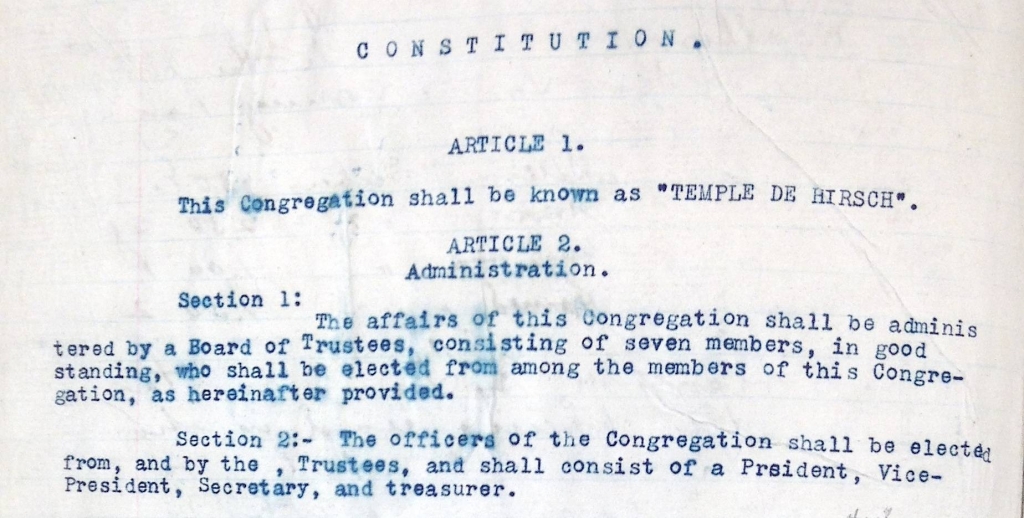Temple Constitution
A Jewish Congregation Along American Lines
A few years before the new temple building was built, the founders of Temple De Hirsch developed a constitution for their community. The constitution laid out the expectations of membership, roles of lay leadership, and community structure. Before looking at the content of the document, it is worthwhile to pause and consider why a Jewish community would define itself through a formal constitution. The goal of this community was to establish itself along “thoroughly American lines.” The fundamental organizing principle of American groups committed to operating within a democratic framework, from the country itself to local organizations, is a constitution. Voting on a constitution created a foundation for this Jewish community that would demonstrate the religious organization’s understanding of a commitment to American ideals of democratic governance and legal principles.
Unlike traditional Jewish communities, this American synagogue would be governed by a constitution voted by the membership rather than Jewish legal precedent. The shift from Jewish law to American democratic principles also reduced the authority of the clergy. The rabbi (or minister as he would have been called in the early twentieth century) served as an employee of the lay leaders and their authority as interpreters of Jewish law was heavily circumscribed by the primary authority placed in the Board of Trustees.
The desire to create a “Jewish congregation along American lines” underscores the importance of social, political, and religious acculturation among the builders of this institution. A constitution ensured that outsiders would not view Jewish religious practice as committed to a different set of values and principles.
Moreover, a constitution would ensure that the synagogue continued to serve as a change-agent for helping Jewish immigrants to become more American. The urge to help speed along the Americanization process could be interpreted as an act of altruistic caring for fellow Jews and/or an act of self-service.

